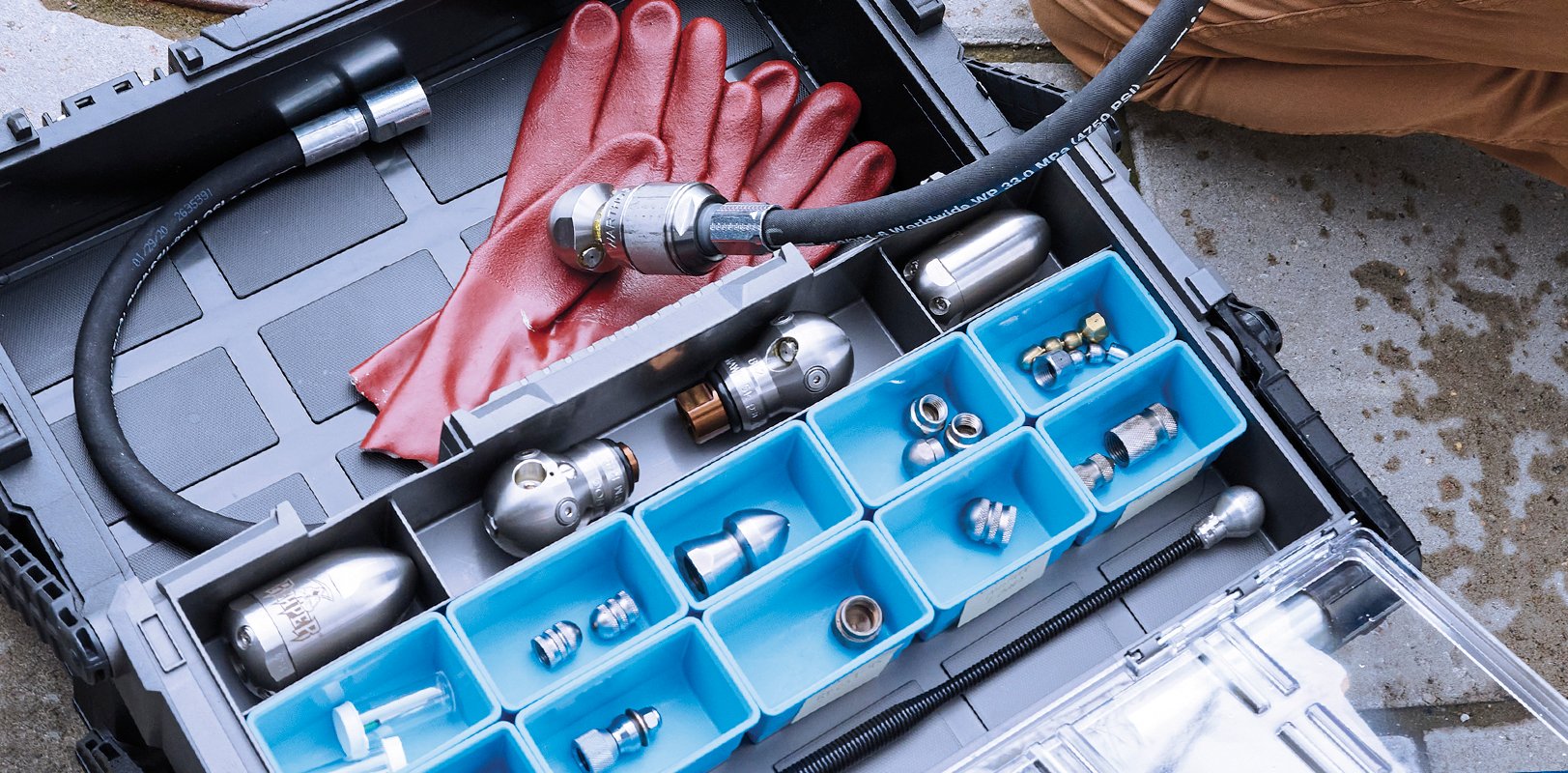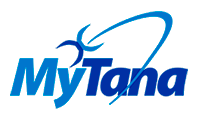Jetters are an essential sewer and drain cleaning tool. If you are new to the drain cleaning world, training new team members, or looking to start your own business in drain cleaning, understanding the ins and outs of jetters is important. Nozzles, one of the key components of a good jetter system, often bring up specific questions like: how nozzles work with jetters, how a nozzle’s design affects the work it can do, and why nozzles have such variance in pricing.
We also have a guide to understanding other technical details of jetters on our blog; once you’ve gone through this article, be sure to click over there to dive in further.
How do nozzles help jetters accomplish drain cleaning tasks?
Each jetter creates a certain amount of energy (high-pressure water flow) that gets pushed out through the hose to the nozzle. The nozzle converts this flow to multiple streams of water aimed at the sidewalls of the pipe. Each nozzle is built to handle a certain amount of flow and pressure, so it needs to match the jetter’s specs to make the most of the potential power.
You also want the nozzle’s specs to match your hose size (NPT) and length. Pressure is lost as it travels through the hose. Using a mis-matched nozzle reduces cleaning pressure or pulling power, basically wasting energy and water if the hose is too large or long. If it is too small or short, it can cause back pressure (over pressure) on the pump.

How does a nozzle’s design affect what it can do?
Jetter nozzles have different designs to accomplish various drain cleaning operations: they disintegrate, cut, penetrate, break up, rinse, churn, or flush debris— while propelling themselves through the line. Hole (jet) positioning and size is key to this: change the angle, location, number or size of the jets on a nozzle and you change what work can be accomplished.
At certain angles, water streams give the jetter more propulsion, shooting the nozzle and hose down a pipeline while flushing away debris. Other angles allow for better scouring, cleaning or breaking up hardened deposits. Forward jets penetrate blockages, add in rotation and you can cut thicker roots; you just need sufficient rear jets to keep it moving forward. While many plumbers and drain cleaners are tempted to rely on a few nozzles to do their work, choosing the right tool for the job helps you work more efficiently.
Why is there such a range in jetter nozzle prices?
How a nozzle is designed, and the materials used to build it directly influences how it will function and, ultimately, how much it will cost. Technology advancements have given us nozzles that can accomplish more tasks more efficiently (which is good for reducing water usage), but they understandably come with a heftier price tag.
Construction materials affect nozzle life and durability. Heavy duty nozzles with long-lasting ceramic inserts are more expensive to begin with, but the inserts can be replaced without having to replace the whole nozzle body. Drilled nozzles wear (often quickly depending on use), and when that happens you have to replace the whole nozzle.
It pays to consider the types of jobs you do, and how often you will use a nozzle. In the end, it may be worth it to buy a more expensive nozzle that will last longer or give the option of a specialized performance.
A note about safety with nozzles and jetters: using the wrong equipment for a task can have severe consequences. We regularly hear about people who have assembled their own jetters with pressure washers, but the outcomes could be disastrous. At best, your DIY jetter will lack performance and you’ll need to invest in one anyway; at worst, a DIY jetter accident can send you to the emergency room. Save yourself from both outcomes and invest in high-quality jetter equipment including jetters, hoses and nozzles.




